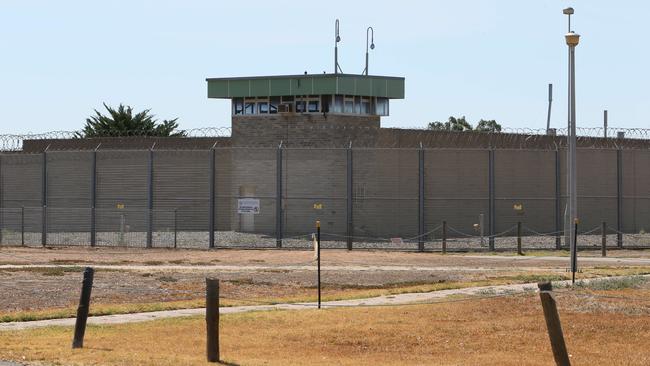ICAC survey reveals ‘concerning’ bullying culture within SA Department of Corrections
A culture of bullying is accepted among SA’s prison workers, with some staff told to “worry about the officers not the prisoners”, a damning ICAC survey has found.

SA News
Don't miss out on the headlines from SA News. Followed categories will be added to My News.
Bullying is accepted as part of the workplace culture in South Australian prisons and nearly all correctional managers have witnessed staff being harassed, a damning survey by the state’s corruption watchdog has found.
The report by Deputy Independent Commissioner Against Corruption Michael Riches found an alarming 90.2 per cent of survey respondents said they “regularly witness bullying and harassment” within the Department of Corrections.
Mr Riches surveyed 720 corrections workers, interviewed 59 staff and received 46 written submissions from prisoners, stakeholders and the public.
The report, tabled in parliament on Thursday, revealed a “blue-shirt code” existed among prison staff, where new correctional officers are “ostracised” if they don’t conform to “established norms”.
“What is concerning is how the perceived blue-shirt code is said to have developed into a culture of turning a blind eye to wrongdoing,” Mr Riches wrote in the report.

A staff testimonial described blue-shirt code as an “attitude of ‘you need to look after me no matter what – even my indiscretions’”.
“On my first day as a correctional officer I was told by another officer to ‘forget what you’ve learned over the past three months and remember the blue code’. The blue code basically meant that you support your partner and never write up an officer,” another staff member said.
The code was also defined as “accepting all forms of bad behaviour to protect peers,” said another staff member.
The “most concerning” aspect of the department’s workplace culture was the “apparent acceptance” of bullying.
One survey respondent said: “You don’t have to worry about the prisoners – worry about the officers”.
“Bullying is accepted. There is a known bullying ‘rat pack’ that is even spoken of during initial induction training and it is accepted that these bullies exist and nothing is ever done to stop it. If reported the person reporting gets victimised and alienated even more,” another staff testimonial said.
Mr Riches acknowledged that “some staff in senior positions held the view that this culture was slowly changing” and programs are in place within the department to help reduce toxicity.
Forty per cent of survey respondents admitted to witnessing abuse of power, while 25.4 per cent saw inappropriate staff relations with prisoners.
Mr Riches’s report found that 16 per cent of surveyed staff have witnessed the introduction of contraband such as phones or drugs into prisons.
The report noted that there was an apparent resistance to the Better Prisons Program, announced during the 2018-19 state budget.
The program aimed to improve the quality, safety and efficiency of the state’s prison system.
Mr Riches made 24 recommendations, including amendments to bullying and harassment training, policy changes, removal of outdated documentation and a conflict of interest policy to ensure staff did not interact with prisoners.
Department of Corrections chief executive David Brown said all 24 recommendations had been accepted.
“The Department welcomes the evaluation by the Deputy ICAC and the opportunities that it has provided for positive organisational change,” he said.
“DCS takes a zero-tolerance approach to workplace bullying and is committed to ensuring that bullying and harassment training is included across a range of departmental mandatory training programs, including values, ethical and respectful behaviours training and Office of the Commissioner for Public Sector Employment Code of Conduct training.”
Corrections Minister Vincent Tarzia said 37 per cent of the department workforce responded to the survey.
“The government will continue working closely with (the department) to ensure a safe workplace for all staff and that employee accountability and integrity measures are further strengthened,” Mr Tarzia said.


